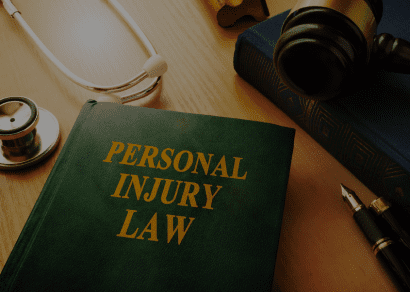Personal Injury Lawyers Edmonton
Contact Us For A Free & Private Consultation
Personal Injury Lawyers in Edmonton: Offering Legal Assistance for Motor Vehicle Accidents
If you’ve been harmed due to the negligence of others, it’s crucial to find the right Personal Injury Lawyer in Edmonton to guide you through this challenging time. Our dedicated team specializes in handling motor vehicle accidents and will work tirelessly to ensure you receive the fair compensation you deserve.
- Car Crashes: Motor vehicle accidents are a significant cause of accidental injuries and deaths. In 2018, there were a staggering 142,596 collisions in Alberta alone. Fatal accidents are most frequent among drivers aged 24 and under.
- Truck Accidents: Due to their size and impact, accidents involving large trucks—which can weigh over 35,000 kilograms—often result in severe injuries and fatalities.
- Motorcycle Accidents: The risk is even higher for motorcyclists, who are 27 times more likely than passengers in cars and trucks to die in an accident. Due to their increased risk factors, these accidents demand special attention.
Please note: If you’ve recently been injured because of someone else’s actions or negligence, it’s essential that you receive medical attention immediately and ensure your physician has properly documented your injuries.


KBL Law Personal Injury Lawyers
If you’ve recently been injured by someone else’s negligence or involved in a motor vehicle accident, contact our office online or by phone at (780) 489-5003 to set up a consultation with one of our personal injury lawyers today.
Why Work with a Personal Injury Lawyer in Edmonton
Working with an injury lawyer following an accident is essential for several compelling reasons. A Personal Injury Lawyer in Edmonton can assist you when involved in a Motor Vehicle Accident, even if you’re a responsible driver.
Initially, the shock of such an event can turn your world upside down, leaving you in a hospital bed, trying to recover from your injuries while bills pile up. Our Disability Lawyer in Edmonton can help address questions about managing these expenses, especially if you can no longer work due to your injuries.
In addition, some injuries might be hidden and only revealed later in life. This is where an experienced Car Accident Lawyer in Edmonton can be invaluable, guiding you through understanding and pursuing your legal rights.
Insurance providers often aim to minimize payouts, and legal representation is necessary for you to settle for far less than you deserve. Like those at KBL Law, a personal injury lawyer tirelessly pursues every avenue of compensation while ensuring you receive top-quality medical care to document your injuries thoroughly. This meticulous documentation is crucial for a favorable outcome in any personal injury case.
How do you file a lawsuit in Alberta?
You should always consult with a lawyer before filing a lawsuit. Lawsuits can be filed by completing a statement of claim and filing in Court of King’s Bench at some major centre courthouses.
Sample forms can be found on the court’s website:
https://www.albertacourts.ca/kb/areas-of-law/civil/forms
You can also file a small claim in the Provincial Court of Alberta at most courthouses, even those in smaller centres. The court has provided guidance and forms for these lawsuits:
For civil claims forms:
https://www.albertacourts.ca/pc/resources/forms/civil-practice-directions-and-forms
For small claims procedure:
https://www.albertacourts.ca/pc/areas-of-law/civil/claims
Filing your own lawsuit is generally not a good idea – the courts rules are complicated and there are rules and time limits which apply to both the filing and conduct of litigation.
Contact our office today. info@kbllaw.com
What do you need to prove to win your case?
Although there is no specific formula for a winning case, you must prove that the party you wish to sue is at fault or partially at fault for an incident, and that you suffered physical, emotional, and or other injuries or losses as a result. The court decides civil lawsuits on the basis of “ the balance of probabilities” at trial, as opposed to the criminal law standard of “beyond a reasonable doubt.” Most civil lawsuits in Alberta do not go to trail but are settled by the parties with the assistance of their lawyers, or at a mediation or judicial dispute resolution conference or “JDR”.
What kind of financial compensation can you hope to receive in your case?
The results of individual cases vary greatly based on the degree of fault of the parties and the nature of the injuries sustained. An injured person might receive compensation for pain and suffering, past and future wage loss, out of pocket expenses, future treatment costs, any many other things. You should speak with a lawyer who can advise you of the claims you can make in your particular circumstances.
How Much Can I Get for My Personal Injury Claim?
The question “How much will I get?” is perhaps our most common inquiry. Determining this involves multiple factors, including the severity of your injuries, the time it takes for you to recover, legal precedents in Alberta for similar cases, how your pain and suffering are perceived by insurance companies or the court, and the extent to which your expenses are a direct result of the accident.
At KBL Law, our experienced Edmonton Car Accident Lawyers can help you find answers to these questions and more. We work diligently to secure the best possible outcome for your case and are here to guide you every step of the way.
FAQs
No, you can also receive compensation for emotional pain and suffering, lost days from work and lifelong work income reduction, among other things.
Damages are based on the severity of the injury, the amount of negligence of the guilty party, healthcare, recovery time and lifelong loss of earning capacity, and other factors.
Yes, but you can only recover a portion of your claim.
Every case is different. A lawsuit might be resolved quickly or last for years depending on the case.
At KBL Law, our dedicated and compassionate Edmonton Personal Injury Lawyers team understands the physical, emotional, and financial challenges you may face after an accident. We have the knowledge, resources, and expertise to effectively represent your interests and fight for the compensation you deserve.
Skilled Negotiators
Our Car Accident Lawyers in Edmonton are skilled in negotiating with insurance companies to ensure you receive a fair settlement. If necessary, we are prepared to represent you in court. We have a proven track record of successfully handling many personal injury cases, including motor vehicle accidents, slips and falls, medical malpractice, and more.
If you or a loved one has suffered an injury due to someone else’s negligence, don’t hesitate to get in touch with our team of experienced Personal Injury Lawyers in Edmonton. Let us help you navigate the complex legal process and secure the compensation you need to get your life back on track.



